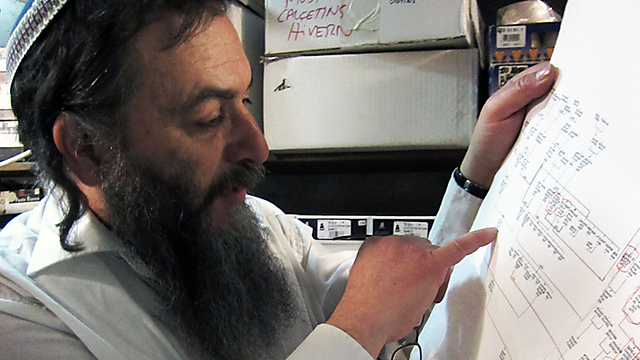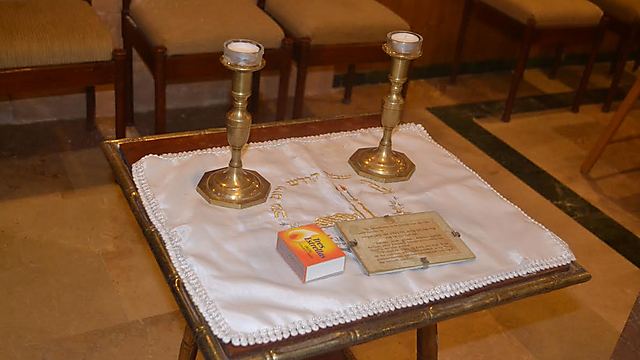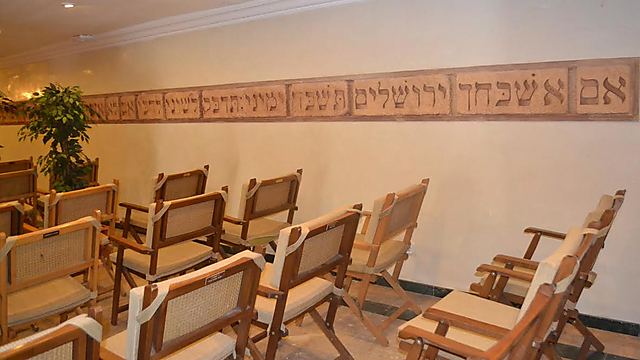With only one synagogue, no rabbi and two meat fridges serving as the ‘kosher store,’ the major problem facing Palma de Mallorca’s 200 Jews is their aging community. Can the island’s hidden Jews, who are rediscovering their roots, help save this fascinating community?
Several years ago, I arrived in Palma de Mallorca for a visit and was captivated by its charm – but more than anything, I wanted to return to the resort city as a researcher in order to delve into the island’s unfamiliar but fascinating Jewish history.
In 1435, Palma de Mallorca’s Jewish community included some 4,000 people. Over the years it thrived and prospered, until the beginning of the Spanish Inquisition. The Jews who did not flee on time were forced to convert to Christianity and continued to observe their religion as secretly as the rest of the Anousim (Marranos) in Spain. In Palma de Mallorca, they were called “chuetas” (from the Catalan word for pigs).
The “chuetas” had 15 main surnames: Aguiló, Bonnin, Calle, Cortès, Fortesa, Fuster, Martí, Miró, Picó, Pomar, Segura, Tarongí, Valentí, Valleriola and Valls. Each Jew who carried one of these names was sentenced to a difficult life.
One the one hand, they couldn’t live as Jews, but on the other hand, the Christians refused to accept them and treated them with much disrespect. They were humiliated and considered members of the lowest class. They were only allowed to marry between themselves, so since 1691 to this very day they have only married other Anousim like them.
Stories of the double life led by the “chuetas” in Palma have only been revealed recently. I heard some of them first-hand from one of the Anousim, Pinchas Pinya.

“Every Sunday we would go to church, but a candle was regularly lit in the house throughout the week,” Pinya says. “It was a candle for the holy Shabbat.”
Pinya decided to return to his roots several years ago. When I asked him when he had found out he was Jewish, he replied with a lot of confidence and pride that he had always known about his Jewishness because his grandmother would shout at them at home not to mix meat and milk, and would even use a special knife to slaughter the poultry in a unique manner. Pinya says he still uses the same knife to slaughter poultry for his home.
Not religious, but love Judaism
Ironically, the derogatory term “chuetas” has become a source of pride for the Bnei Anousim who are discovering their roots and seeking to return to their forefathers’ religion. Today, there are 20 to 30 Bnei Anousim in the island who are studying Jewish religious laws on a monthly basis with Rabbi Nissan Ben Avraham, an emissary of the Shavei Israel organization, who returned to the Jewish religion himself after finding out that his own family had kept the secret for many years. One of his regular students is writer and journalist Miquel Segura, who is thirsty to learn more and more about his family members’ history.
Today, Palma’s Jewish community includes 200 to 250 people, but many others who are defined as “guests” join the community during the year. Avraham Bar Shilon has been serving as the community president for the past four years.
Palma has a diverse and multicultural Jewish community, both from an ethnic and religious aspect. Palma’s Jews love the Jewish holidays, tradition and heritage, but do not consider themselves religious.
Before the Inquisition, there were four active synagogues on the island. Today, it has only one active synagogue, which is open for prayers every Friday evening and conducts Shabbat welcoming ceremony. On Saturday mornings it is closed, except on holidays when many Jews arrive.
‘The kosher store’: 2 meat fridges
I arrived at the synagogue with my family on Rosh Hashana Eve, a moment before the evening prayer. The men sat in the back while the women sat in the back side, some dressed in pants, some without a head cover and some with exposed shoulders.

Palma’s Jewish community doesn’t have a rabbi at the moment, so the prayer was led by a young cantor who arrived especially from Barcelona, accompanied by the community’s president. The prayer was short and light, and when it ended we all met at the banquet hall for the “Rosh Hashana Seder,” which was held just like a Passover Seder and was attended by more than 90 people.
Next to every chair there was a plate filled with “signs” (apple and honey, a pomegranate, squash, dates, the head of a fish and more). The meal was conducted by the young rabbi from Barcelona.
When I asked Bar Shilon why the community had no rabbi, he explained that the appointment was being delayed due to budgetary issues and the fact that the community members were looking for a “light” rabbi.
Despite the allegedly “non-religious” atmosphere, the community members make sure to only eat kosher meat imported from Spain, due to the absence of a local butcher or kashrut supervisor. Two large commercial fridges, where the kosher meat is kept, serve as the tiny Jewish community’s “kosher store.”
As there is no local mohel either, circumcision ceremonies are also conducted by circumcisers who arrive especially for the event from Madrid or Barcelona. According to the community members, the few Israelis who live on the island play no part in the community life and don’t even visit the synagogue on Jewish holidays.
A aging community
One of the major problems this magical community will be forced to deal with in the not-so-distant future is the fact that it is aging. The only children at the Rosh Hashana meal in the synagogue were my own kids. The community leader told me, sadly, that the young members leave the community every year to study outside Palma de Mallorca, and then get married and start a family elsewhere.

The community’s few children and teenagers study in governmental schools, as there is no Jewish school on the island (and their small number doesn’t justify the existence of such a school). An initiative to establish a “Sunday school” didn’t last long either.
This is one of the most fascinating Jewish communities I have ever visited around the world. The solution to their problem may lie in the integration of local Bnei Anousim who are interested in returning to the Jewish religion and community life. If the suitable rabbi is found, it will benefit not only the local Jews and Bnei Anousim, but also the Jewish heritage and tradition in this generation and in the generations to come.
As reported by Ynetnews
